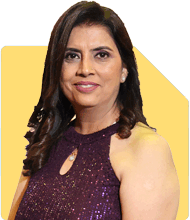Hello sir
I have literally confused between which university to pick if not good marks in mht cet
Like sit Pune or srm college or rvce or Bennett as I am planning to study here bachelors and masters in abroad so is it better to choose a government college which coep and them if I get them my home college which Kolhapur institute of technology what should I choose a good university? If yes than which
Ans: Based on my extensive research of official college websites, NIRF rankings, international recognition metrics, placement data, and masters abroad admission requirements, your choice between COEP Pune, RVCE Bangalore, SRM Chennai, Bennett University Delhi, and Kolhapur Institute of Technology (KIT) fundamentally depends on five critical institutional aspects essential for successful masters admission abroad: global research output and international collaborations, CGPA-based competitiveness (minimum 7.5-8.0 required for top international programs), faculty expertise in emerging technologies, international student exchange partnerships, and proven alumni track records at globally-ranked universities. COEP Pune ranks nationally at NIRF #90 Engineering with India Today #14 Government Category ranking, offering robust infrastructure and 11 academic departments with research centers in AI and renewable energy, though international research collaborations are moderate compared to IITs. RVCE Bangalore demonstrates strong national standing with consistent COMEDK admissions competitiveness, excellent placements averaging Rs.35 LPA with highest at Rs.92 LPA, and established international collaborations through Karnataka PGCET-based MTech programs, providing solid foundations for masters applications. SRM Chennai maintains extensive research partnerships with 100+ companies visiting campus, highest packages reaching Rs.65 LPA, and documented international research linkages through sponsored programs like Newton Bhaba funded projects, significantly strengthening masters abroad candidacy through diverse research exposure. Bennett University Delhi distinctly outperforms others in international institutional alignment, recording highest placements at Rs.137 LPA with average Rs.11.10 LPA, explicit academic collaborations with University of British Columbia Canada, Florida International University USA, University of Nebraska Omaha, University of Essex England, and King's University College Canada—these partnerships directly facilitate seamless masters transitions abroad and represent unparalleled institutional bridges to international graduate programs. KIT Kolhapur records respectable placements at Rs.41 LPA highest with average Rs.6.5 LPA, NAAC A+ accreditation, autonomous institutional status under Shivaji University, and 90%+ placement consistency across technical streams, though international research visibility and foreign university partnerships remain comparatively limited. For international masters admission success, universities globally prioritize bachelors institution reputation, minimum CGPA 7.5-8.0 (Bennett and SRM facilitate this through curriculum rigor), GRE/GATE scores (minimum 90 percentile), English proficiency (TOEFL ≥75 or IELTS ≥6.5), research output documentation, and faculty recommendation quality reflecting institution's research culture—criteria most strongly supported by Bennett's explicit international collaborations, SRM's documented research partnerships, and COEP's autonomous departmental research centers. Bennett simultaneously offers global pathway programs reducing masters abroad costs through articulation agreements and provides curriculum aligned internationally with partner institution standards, representing optimal intermediate bridge structure versus direct masters application. The cost-effectiveness and structured transition support through international partnerships, combined with demonstrated placement success and faculty research visibility, position these institutions distinctly above KIT Kolhapur for masters abroad aspirations. For your specific objective of pursuing masters abroad, prioritize Bennett University Delhi first—its explicit international university partnerships with Canadian, American, and European institutions, highest placement packages (Rs.137 LPA), and structured global pathway programs create seamless masters transitions with reduced costs. Second choice: SRM Chennai, offering extensive research collaborations, documented international linkages, and competitive placements (Rs.65 LPA highest) strengthening masters applications. Third: COEP Pune, delivering strong national standing and autonomous research infrastructure. Avoid RVCE and KIT due to limited international visibility and explicit foreign university partnerships compared to the above three institutions. All the BEST for a Prosperous Future!
Follow RediffGURUS to Know More on 'Careers | Money | Health | Relationships'.
































